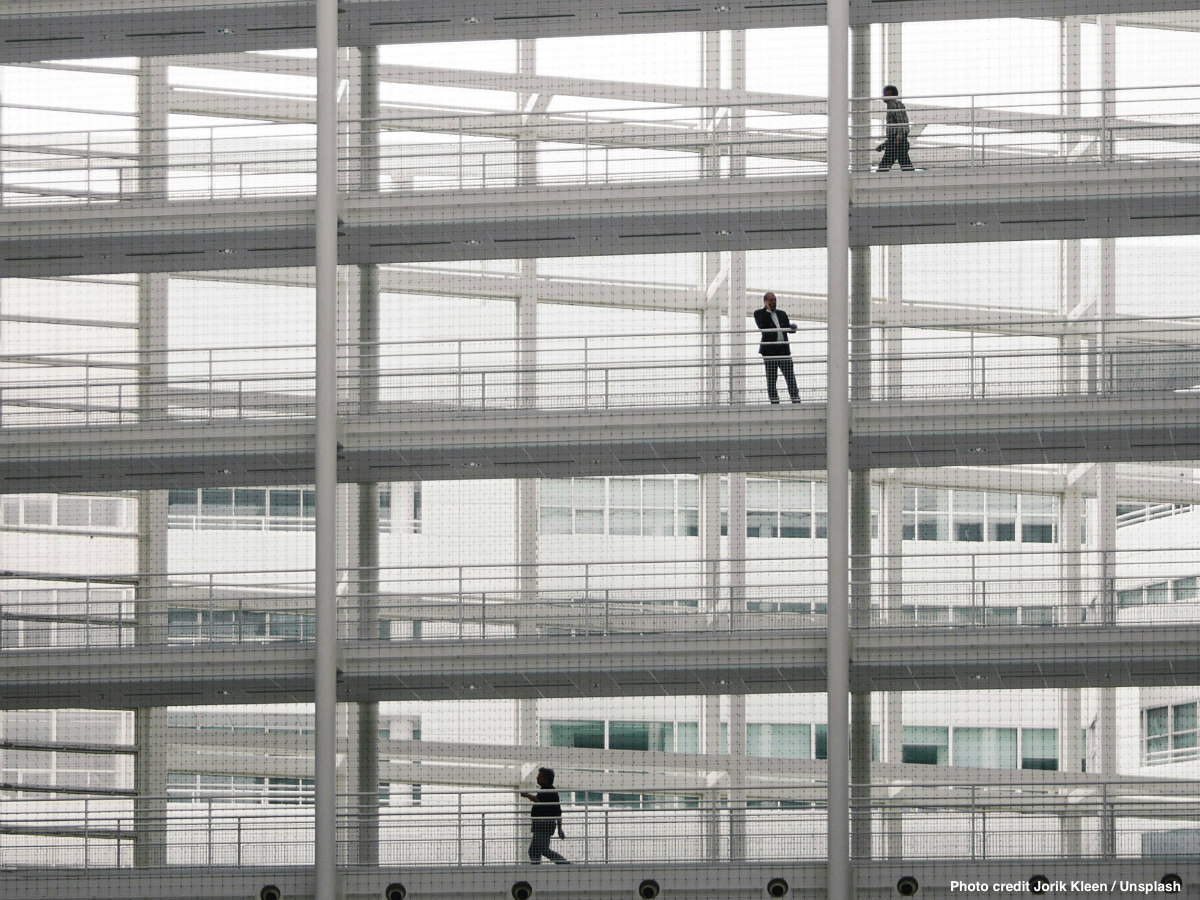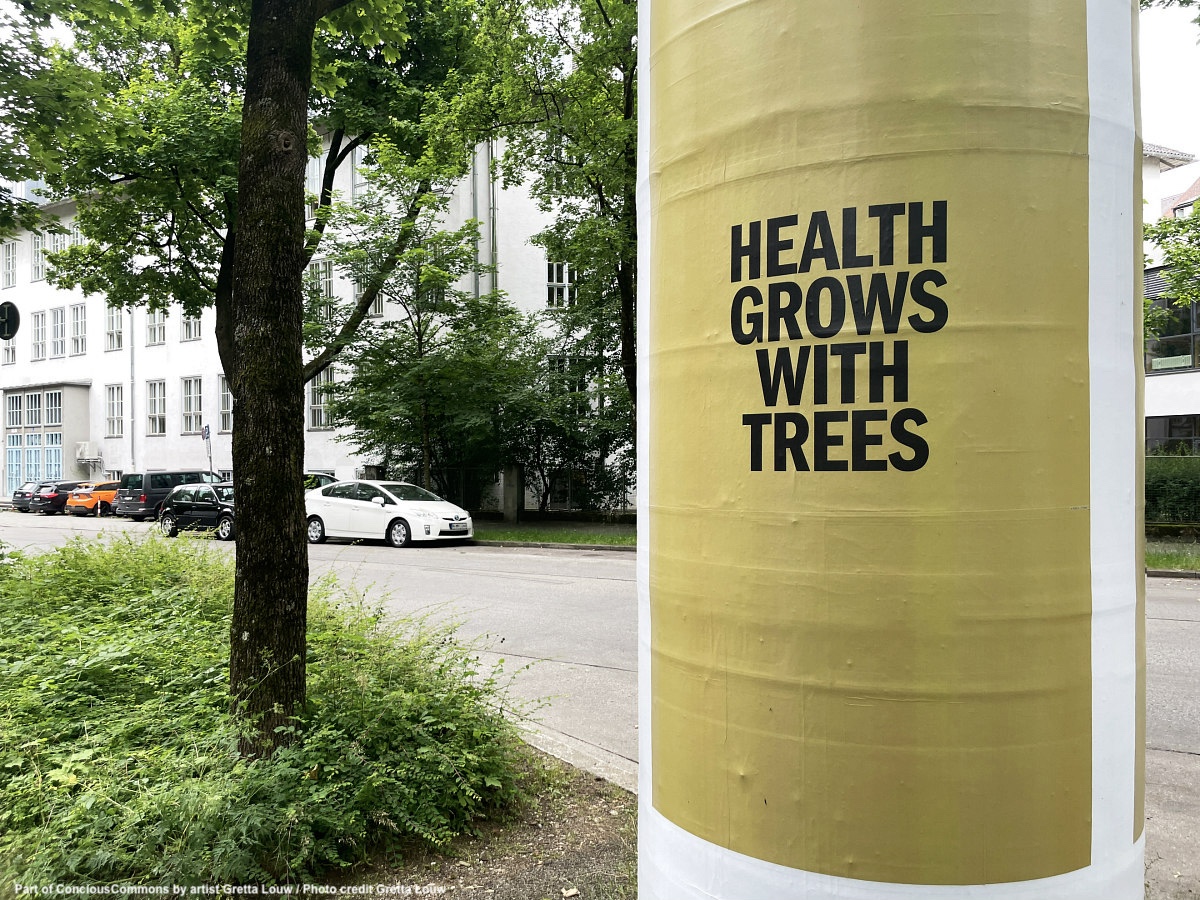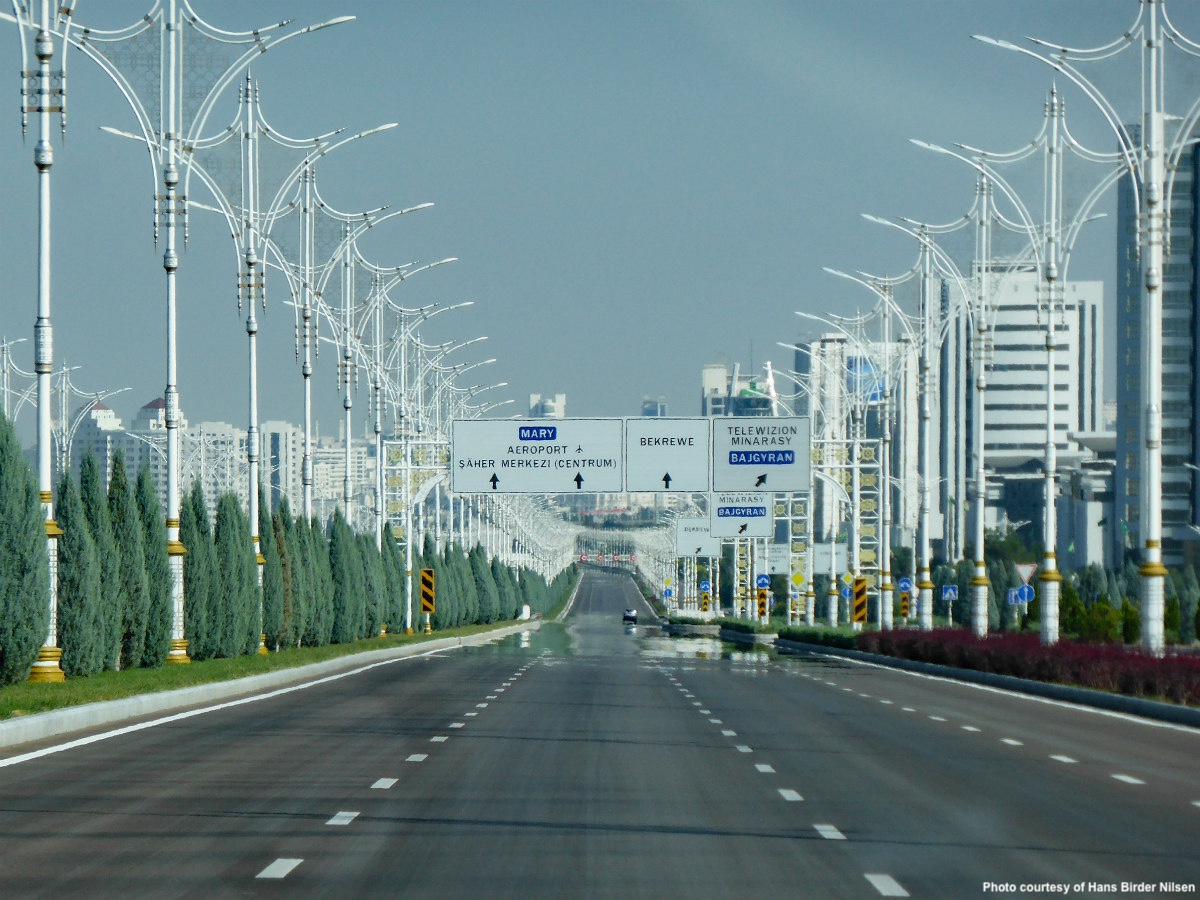In 2021, Dutch ministers in the Hague, Netherlands, started sharing their agendas with the public – who they meet with and what they talk about. What might sound for some like a ripe opportunity for voyeurism , was in fact a way to expose undisclosed lobbying and other interactions that could exert influence on government decision-makers.
After all, even the president of the United States has his public schedule available online for everyone. Daily brief at 8 am, the White House Easter Egg Roll two hours later. You can see it for yourself.
After the Council of Europe’s anti-corruption watchdog GRECO repeatedly denounced that the Netherlands is not following GRECO’s recommendations on lobbying transparency, the Dutch Parliament called initially for the introduction of a lobbying register. This practice, commonly used by other countries, was finally rejected; ministers’ agendas came as an alternative.
Open State Foundation is the non-profit organization exercising pressure on Dutch MPs to be more transparent about any lobbyist they’ve engaged with. Its multidisciplinary team – a phenomenal combination of political and software developers, and lawyers – has developed the Open Lobby tool, a solution-driven response to transparency in the Hague. This tool scans the agendas of ministers, and makes their appointments visual and searchable for the public. The search function offers everyone the opportunity to search for specific companies, ministries and ministers.
When I first came across Open Lobby tool, I was immediately captivated by the idea that if you can monitor the agendas of the country’s most relevant decision-makers, all based in one city, The Hague, it can tell so much about how lobbying has an influence in the whole country. The Hague is the country’s administrative center, where the government has its seat. It is also home to the headquarters of many Dutch companies as well as a major satellite of other major companies such as the British fuel company Shell, headquartered in London.
“I should say, despite negative connotations, there is nothing wrong with lobbying,” clarifies Charlotte Kroese, a lawyer and researcher at Open State Foundation, as we meet over Zoom. She went on to describe how the word “lobbying” can prompt images of “men in obscure and dark backrooms making conspiracies” (interestingly not women), but that lobbying is not inherently a bad thing. In principle, it is a legitimate activity whose input can be very useful for a government making new policies or new legislation about a topic they might not know a lot about.
But it becomes problematic for democracy when there is no transparency about the kind of organizations – individuals, businesses and nonprofits – that sit at the table with which minister, and the kind of input they provide and the influence they wield in decision making.
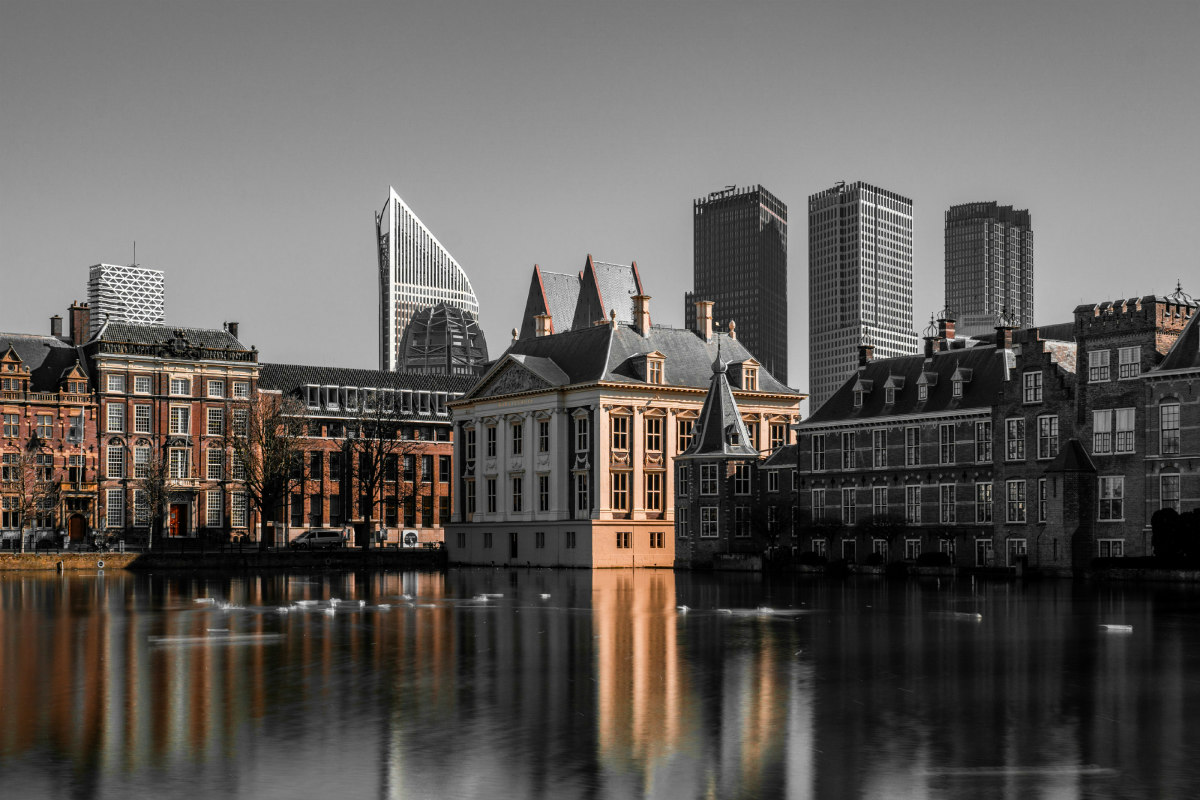
***
When the lobbying register was rejected in the Dutch Parliament, tells Kroese, one of the main claims was that the definition of “lobbyist” is blurry. Lobbyists are afraid that if they are registered as such in the room, it could hinder discussions with ministers or exclude them from easy access to decision-makers. However, other countries such as Ireland are already using such registers because without these official lobbying records, policy advocates who influence modern policy lobbying, would remain mostly unaccounted and undisclosed.
The Open Lobby tool goes a step further. “It captures what it is missing,” says Kroese. The scan of ministers’ agendas exposes the absence of a wide range of participants – smaller NGOs, grassroots organizations, representatives of the civic society – whose input could help make better laws and legislation.
Two years ago, Rosa Juffer, a former researcher at the Open State Foundation, wrote her thesis on how lobbying is organized in the Netherlands and who gets a seat at the lobby table and who doesn’t. One of the main conclusions was that only 10% of the private parties that are present at the negotiating table, or at the legislation drafting table, are NGOs; the rest are mostly larger companies. “And that’s where we [Open State Foundation] want information to be available, so that everyone can hold a more informed discussion,” says Kroese. Ultimately, it creates a level playing field between all level parties.
Immediately, I have to think about neighbors and grassroots organizations in New York that I recently interviewed. They began sitting at long meetings with lawyers of their only gas supplier and the regulatory agency that oversees New York State’s electricity, gas, water and communications industries. Their lobbying efforts have paved the way for significant climate legislation in New York.
In the Netherlands, Dutch newspapers have often reported that fossil fuel companies – particularly Shell – have a decisive backroom influence on government decisions. Open State Foundation has also worked with teams of large national newspapers for research purposes. I ask Kroese if they draw specific conclusions from the research of the data they collect, but she says that they leave the specific analysis of a topic to investigative journalists.
In this way, they keep their independence, Kroese says. The Open State Foundation presents itself to the government as both a rebel and a partner. “You have to make sure that you keep your work as neutral and apolitical as possible because transparency is inherently apolitical,” she says. Transparency is good for everyone. “We hold governments accountable but at the same time, we try to show them how it’s possible to improve.”
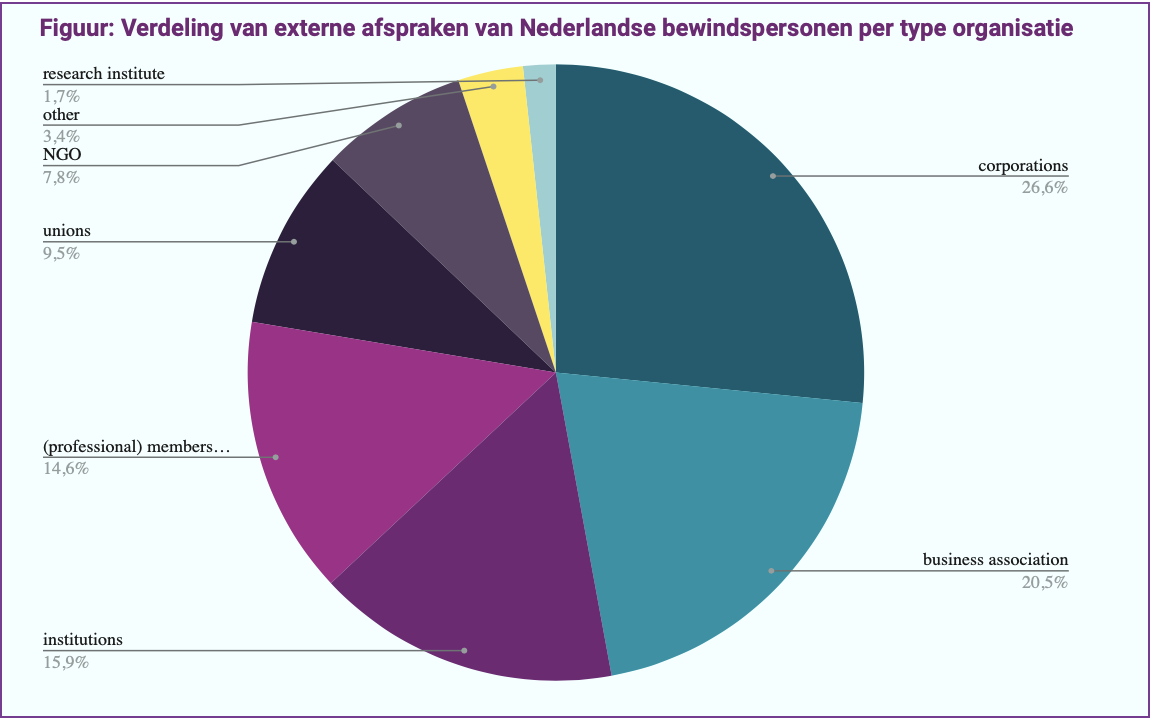
In 2021 an article in the Volkskrant based on the research of the Open State Foundation drew attention to the so-called revolving door in the Hague. They mapped out all ex-MPs and ministers between 2012 and 2021. A significant number of them (44%) left the Hague, but came right back as advisors or consultants for public affairs in the capacity of advocates for the private sector. And they use all their insider knowledge, their contacts and their network. The Open State Foundation has advocated for a bill that introduces a cooling-off period of at least two years, during which former ministers are not allowed to lobby their old ministry or related policy areas. The bill is already scheduled to be discussed in the Dutch Parliament, and is expected to pass soon.
In principle, Open Lobby is a great tool to track undisclosed lobbying, but it works best if it has enough data from the ministers’ agendas. Unfortunately, the last research of Open Lobby, published in November 2023, showed that the agendas are poorly maintained. Only 12% of all ministers’ and secretaries’ agendas record both the discussion topic of the agenda as well as all the conversation partners, for each appointment.
Whether this is down to incompetence or a heavy administrative load, this lack of information also points to the fact that often there are other channels of communication. Often companies’ CEOs have phone calls directly with ministers, “which is fine if it’s registered and if we know what they’re talking about,” says Kroese. But most small NGOs who could have a more critical view of the government’s view on legislation or plans for project’s permissions, don’t have an open line with decision-makers. That’s concerning.
Without lobbying registers, of any form, the potential for abuse of undisclosed lobbying is vast. Its potential upside is equally great, and could benefit a nearly infinite number of decisions and citizens of the Netherlands, and beyond. The Open State Foundation’s work is still just the tip of the iceberg.
